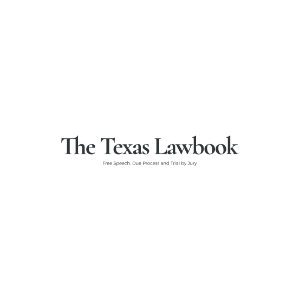Defective and dangerous products can be a cause of moderate to severe injury or even death. Sometimes, the most unsuspecting products and appliances can cause surprising injuries that leave you with substantial medical bills and other damages you need help with.
To get compensation for an injury from a defective or dangerous product, you should consider taking your case to our Arlington, TX products liability lawyers. Our products liability attorneys can help investigate the cause of injury, determine what was wrong with your product, and hold the right parties accountable.
For help with your product injury case, call the Arlington, TX products liability lawyers at The Queenan Law Firm today. Our number is (817) 476-1797.
Categories of Products Liability Cases in Arlington, TX
“Products liability” refers to a branch of law dealing with injuries from defective and dangerous products. Generally, these cases fall into three categories based on the type of error or mistake that caused your injuries. Our Arlington products liability attorneys can help with any of these kinds of product injury cases:
Manufacturing Defects
Products liability cases often deal with manufacturing defects, which refer to problems in the way that the product was assembled or manufactured. Generally speaking, these mistakes deal with inferior materials being substituted in for more expensive ones, missing parts, breaks and cracks during manufacturing, or even products being tainted on the assembly line. All in all, any deviation from the intended design usually qualifies as a “manufacturing defect.”
Things like plastic that is too thin, missing screws, or products that were put together wrong fall under this category of products liability case. Keep in mind that many products are the result of pieces and parts being used from many different manufacturers (e.g., toys made from screws from one company, plastic from another company, and microchips from a third company). The at-fault manufacturer might be the company that assembled the final product or the company that made a specific defective piece of the end product.
Manufacturing defects tend to affect a specific product or an entire batch of products made on the same day, in the same factory, or with the same shipment of defective parts. As such, you often need to save the specific defective product as evidence for your case. Talk to our Arlington products liability attorneys about how to save the product as evidence or whether photos and other documentary evidence might be sufficient rather than keeping an unsafe product around.
Design Defects
If the product was assembled perfectly and all instructions were followed, it might still be a dangerous or “defective” product. This kind of defect is referred to as a “design” defect and usually arises in cases where there is a problem with the way a product is designed that makes it inherently dangerous in a way that should have been taken into consideration.
Design defects are often the sort of things that should be discovered during product testing and should not make their way to market. This includes things like a faulty design that allows the blade of an appliance to come off during use or causes a safety switch to deactivate under certain conditions.
Often, these design defects affect the entire line of products, and these dangerous products remain out there on the market until the design is updated in future versions or a recall is used to take dangerous products off the market. As such, you might not need evidence that your specific product was defective, but rather evidence from any sample of the same defective product could supply evidence for your case.
Marketing Defect/Failure to Warn
Some products are simply dangerous, and that cannot be changed through safety features. Things like power tools, lawnmowers, chainsaws, and even cars are inherently dangerous, but they are still sold and used every day. To protect users, manufacturers put warning labels on their products and market products only for specific uses. They also warn that using a product the wrong way or for any other use might be dangerous. If they fail to do this, they might be responsible for failure to warn or for a “marketing defect.”
Many products contain warning labels because products like them have been responsible for injuries in the past, and the warning labels are there to prevent that from happening again. Other product manufacturers discover dangers or side effects during testing – something that is incredibly common in pharmaceutical manufacturing.
When manufacturers should reasonably have been aware of dangers, but nonetheless failed to include sufficient warnings, they can be liable for these kinds of products liability claims. Generally, these cases are either filed because the warning was missing entirely or because it was insufficient, such as when a warning is hidden in an instruction booklet instead of posted on a sticker directly on the product or packaging. Talk to your Arlington products liability lawyer about what evidence is necessary for these kinds of claims.
Common Examples of Product Injury Cases in Arlington, TX
As mentioned in the explanation above, product injuries can involve a variety of defective or dangerous products. Our Arlington products liability attorneys can handle products liability claims dealing with any of the following types of products:
- Auto parts (e.g., defective ignition switches, fuel pumps, and airbags)
- Vehicles
- Pharmaceuticals and medication (e.g., pills and drugs)
- Medical devices (e.g., surgical mesh, pacemakers, and implants)
- Power tools
- Home appliances (e.g., blenders, food processors, hair dryers, shavers)
- Other household tools (e.g., lawn mowers, weed whackers)
- Electronics (especially devices with dangerous batteries)
- Toys (especially those with choking hazards and toxic materials)
Call Our Arlington Products Liability Attorneys Today
If you or a loved one was injured because of a dangerous or defective product, call our Arlington products liability lawyers today for a free case review. Our phone number is (817) 476-1797.






